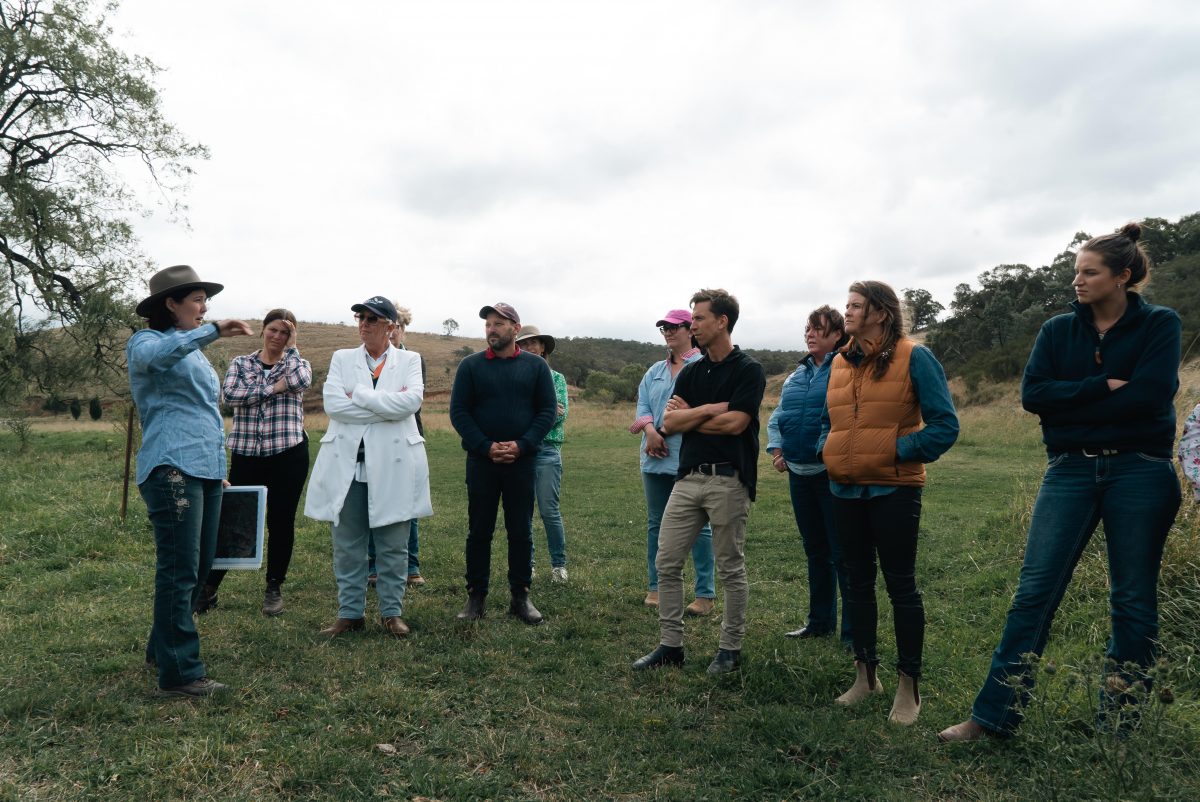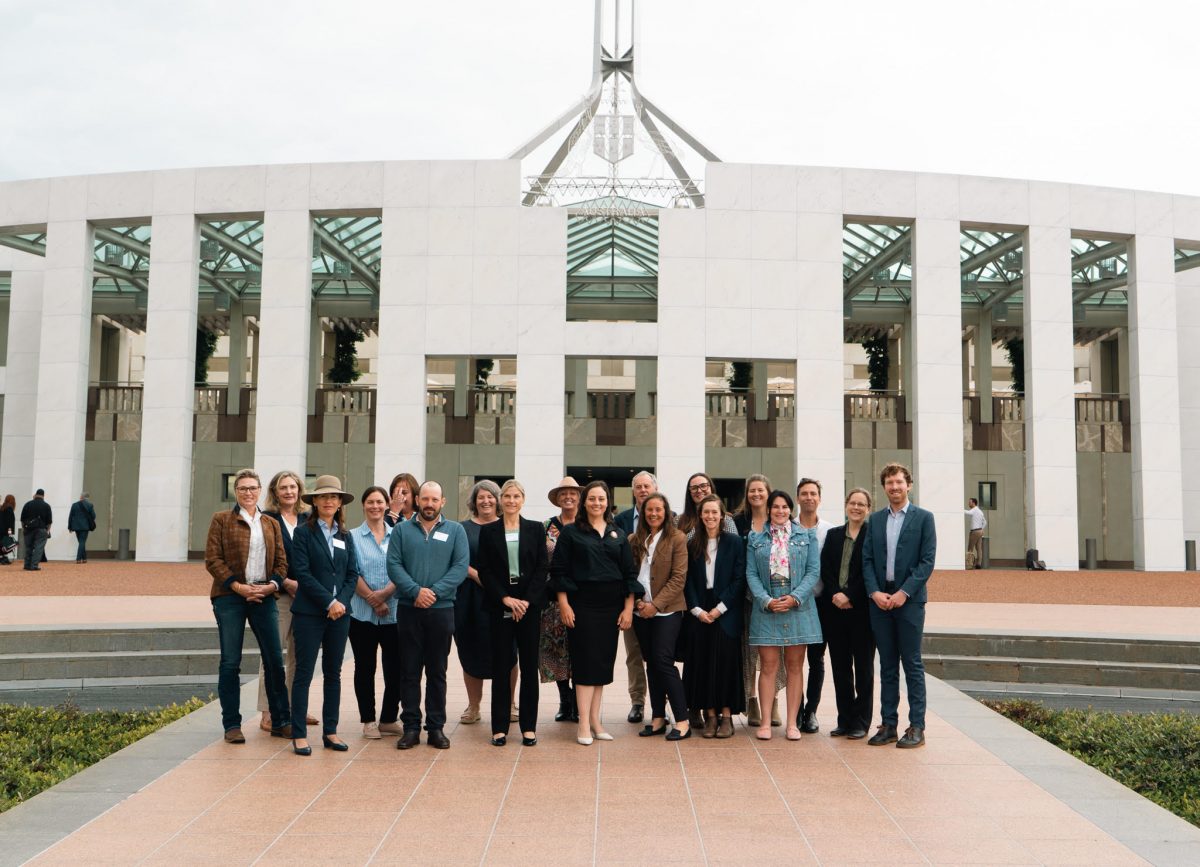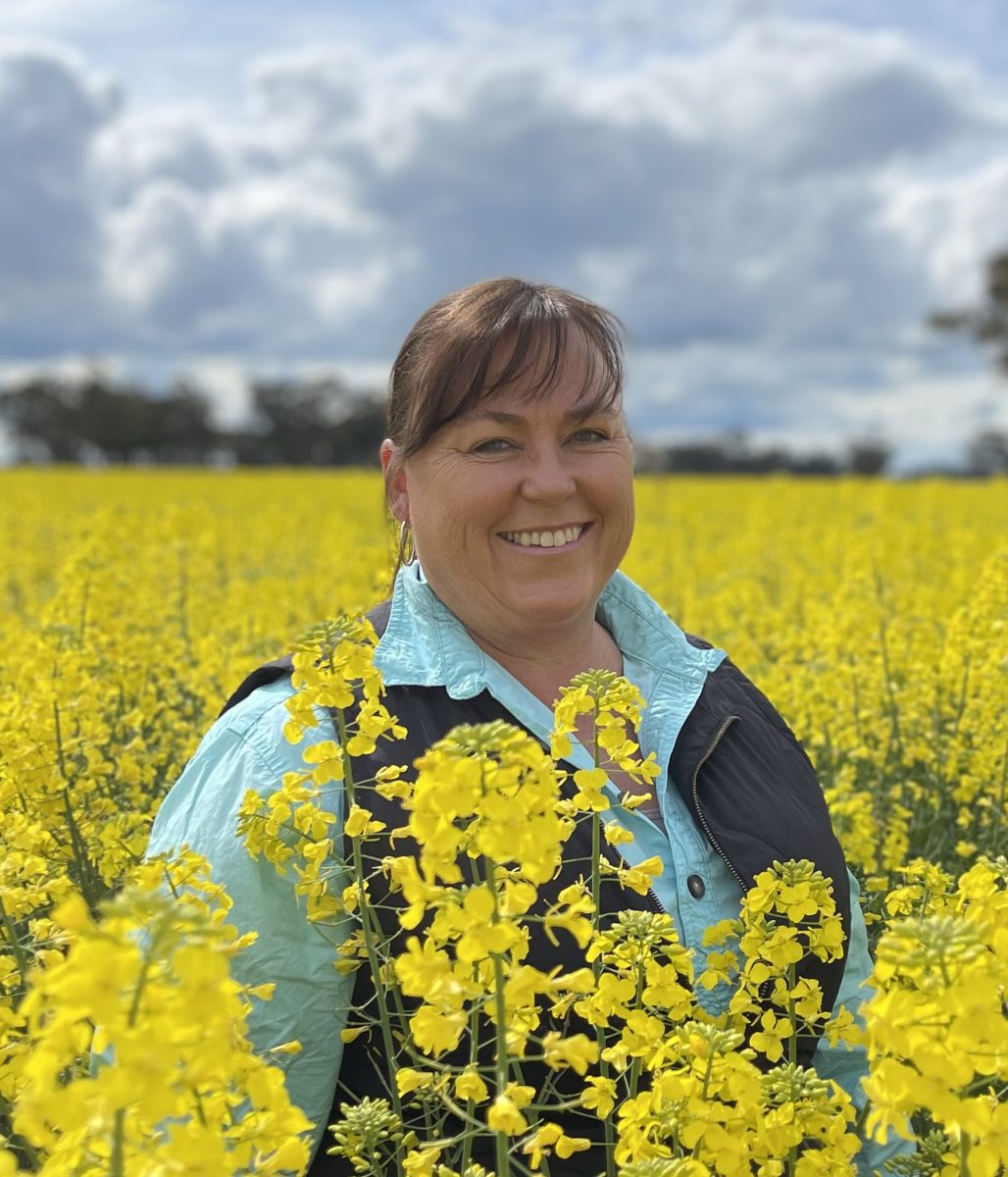
The long-form scholarship that took place early in the year brought farmers into the field with their educators for hands-on experience with their subject matter. Photo: Farmers for Climate Action.
The climate is changing and farmers are not letting it get ahead of them. On Wednesday (31 May) from 11 am to 4 pm, charity Farmers for Climate Action (FCA) will run a series of free online workshops on climate science and communication by leading global experts at the ANU.
FCA represents more than 7000 Australian farmers who want the country to adapt to the coming decades of increasing environmental instability.
The one-day course will be a condensed version of the five-month-long scholarship program that took place early this year, covering topics on carbon farming, agri-politics, greenhouse gas (GHG) emissions, renewable energy and how to enhance disaster resilience on farmers’ properties.
Ellen Litchfield, who works for the charity as an industry development adviser, said she wanted to run the course due to the huge amount of demand for the 20 spots available in the scholarship when it was offered last year.
“We saw that thirst for knowledge in the 330 responses we got, but just couldn’t accommodate them all because we didn’t have the resources,” Ellen said.
“So we’ve worked with the ANU to make this one-day workshop, the first of its kind for our organisation and the university, to cover the big issues that are relevant to farmers all across Australia.”
According to FCA’s survey last year, which involved 600 of its farmer members, 70 per cent had no understanding of the carbon market and only 10 per cent actually participated in it.
Caitlyn Baljak, who works as an emissions removal manager for Below Zero, and as an educator for the ANU Institute for Climate, Energy & Disaster Solutions (ANU/ICEDS), will be running a workshop on this subject for the course.
Asked why farmers should be interested in the course, Ellen said: “Farmers are business owners and climate change poses the most significant risk to their business.
“It’s not just business savvy but your community duty as a farmer to be aware of this and understand all the information around it so that you’re ready to deal with it.”

The intensive scholarship was facilitated over five months and included a three-day course at ANU, carbon accounting with the University of Melbourne, various other webinars, and a trip to Canberra for discussions with climate policy experts. Photo: Farmers for Climate Action.
One of the most engaging sessions run during the scholarship, according to those who participated, was the agri-politics and science communication course run by Dr Bec Colvin. Ellen said this was included due to the special role farmers have in these discussions.
“Farmers are trusted members of society and their businesses have been dealing with weather more than the average person forever,” Ellen said.
“So as trusted voices on these sorts of issues, which can be quite upsetting and controversial for many.
“We saw utility in that course as it gives farmers the skills to clearly articulate what they’re seeing in a way that’s more digestible for not only their neighbours who might be more resistant to this information, but also to government so they can effectively influence policy on these issues.”
The most popular scholarship course was run by ANU Professor Mark Howden, who led participants in understanding GHG emissions for predicting the new extremes of the climate and how to take advantage of it on their properties.
In one part of the workshop, he gave farmers a rundown on all the online resources available to them, such as the Bureau of Meteorology’s map that can estimate what a property will potentially look like in 10 to 20 years’ time based on different emissions predictions.

Fiona Marshall also works as chair of Riverine Plains Inc, an independent farming systems organisation providing the latest agricultural research for its members in the Riverina. Photo: Farmers for Climate Action.
Fiona Marshall runs a dryland cropping enterprise and manages a few thousand sheep on her husband’s family farm just north of Mulwala in the Riverina. She participated in the scholarship and said Professor Howden’s presentation shocked her the most when she learnt just how sensitive the environment is to small temperature changes.
“The environment is just like our body. If we have a small temperature change, a lot of the functions we take for granted simply don’t function anymore,” she said.
With her background in applied biology, Fiona was immediately drawn to the science-heavy program, but said anyone could understand its content. Asked what she’d recommend to those participating next week, she said: “Any information is good information, so make sure you listen, engage and learn.”
To find out more about the Farmers for Climate Action course and sign up, the expression of interest form can be found here. If you sign up and all the spots are taken, the charity will notify you first of any new courses on offer.












